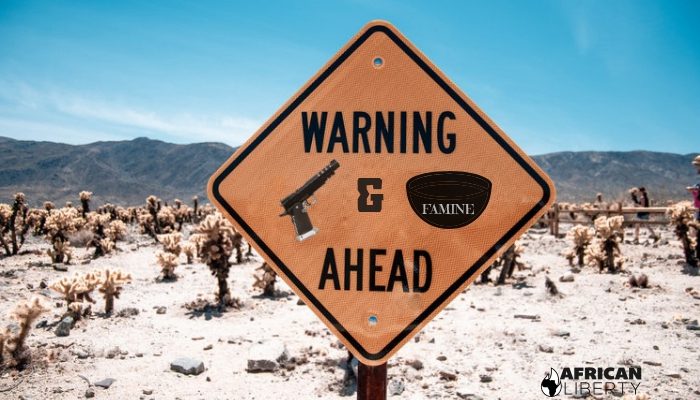
The fight against famine in some parts of the world is being lost. This was the sobering verdict delivered earlier this month by United Nations humanitarian chief Mark Lowcock when he was speaking on the humanitarian situation in Yemen. More than 8 million people are now severely food insecure in the country as a result of a period of violence now stretching to almost four years.
And just like in Yemen, the situation is not a one-off for Africa. In 2017 alone, three African countries found themselves on the verge of starvation: Somalia, Nigeria, and South Sudan. The common theme? Violent conflict and the difficulty of ending the hunger it creates.
Why Fighting Conflict Matters
In the context of conflict and the resulting food crises, organizations that only deliver aid will fall short of the goal of ending people’s need. While delivering humanitarian aid and development projects that help people survive was once considered sufficient, calls for tackling the causes of need have grown louder. In many contexts, these calls for action now include paying attention to the dynamics of conflict and helping to defuse tensions.
It is time for all international organizations and development NGOs to embrace the enhanced role they must play to address the root causes of food insecurity.
Former U.N. Secretary-General Ban Ki-Moon based his rallying call for “sustaining peace” on this understanding — rendering, peace, development, and respect for human rights, all part of the same package. Development actors must help address conflict. More than two years have passed since the resolutions of the U.N. Security Council and the General Assembly that anchored this new approach.
It is time for all international organizations and development NGOs to embrace the enhanced role they must play to address the root causes of food insecurity.
One important actor that has taken steps to adapt is the Food and Agriculture Organization of the United Nations. The agency is working to place conflict sensitivity at the heart of its interventions in conflict-affected zones to ensure it not only meets immediate livelihood needs, but helps put an end to those needs.
Groups such as FAO must also work to reduce inequalities, build resilience, and promote sustainable agriculture in order for violence to become less likely to occur or recur over the long term. For instance, emerging research from an FAO-implemented program in the Democratic Republic of the Congo indicates that increased household resilience is associated with less support for violence.
We Need More of the Good Work
Interpeace has worked with conflict-affected societies for 25 years, supporting processes of change that include people and organizations at all levels.
Enhancing capacities for conflict sensitivity requires a holistic approach in order to not become a box-ticking exercise.
A partnership that helps FAO meet its objectives on conflict sensitivity was a natural fit for us, and we have developed a set of tools for FAO’s professionals to use in the field.
Enhancing capacities for conflict sensitivity requires a holistic approach in order to not become a box-ticking exercise. This means assessing and adapting processes and tools for program design, strengthening awareness, and an organizational culture conducive to conflict-sensitive approaches, as well as enhancing skills. Such change processes are more likely to succeed if they build on existing tools and practices and if they enjoy the political support of the organization’s leadership.
Strengthening conflict sensitive programming will succeed if those designing and implementing programs see the added value for their daily work and are enabled to easily integrate the necessary steps into existing workflows through simple steps that yield meaningful outcomes.
The international response to crises needs to change. Addressing the causes of conflicts, building robust, inclusive societies that resist violence: these are the new criteria for effectiveness. Yemen, Somalia, Nigeria, South Sudan, or elsewhere, the challenge is the same — and the challenge will not wait.


